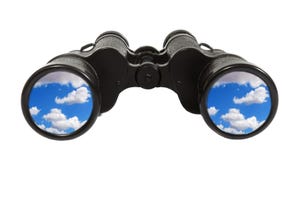Cigna Offers Cancer-Fighting Video Game To PatientsCigna Offers Cancer-Fighting Video Game To Patients
HopeLab claims that cancer patients who play Re-Mission have more successful treatment than those who don't play the game.

Video games have long offered escapist entertainment, a chance to role play and master new worlds through a combination of quick thinking and adept hand-eye coordination. Having recognized the potential for HopeLab's Re-Mission game, which features a cancer-fighting nanobot named Roxxi, to help educate and entertain stricken teens, Cigna Healthcare announced Wednesday a partnership with HopeLab to put the game in the hands of tens of thousands of young patients undergoing cancer treatment.
Re-Mission is free to these patients and can be downloaded via Cigna's Web site. Although the game has been around since April 2006 and HopeLab has shipped more than 76,000 copies, the deal with Cigna offers a distribution channel to that company's network of physicians and vast membership, which covers more than 60,000 employers and about 47 million individuals.
More interesting than the game itself -- a 3-D "shooter" scenario where Roxxi, clad in form-fitting silver body armor, floats through a cancer patient's body zapping bacteria, fat globules, and leukemia cells with her multipurpose med blaster -- are HopeLab's claims that patients who play Re-Mission have more successful treatment than those who don't play the game.
"We found that the game has enormous efficacy, giving young patients control and power over their cancer," HopeLab president Pat Christen told InformationWeek.
HopeLab, a nonprofit founded in 2001 by Pamela Omidyar, wife of eBay founder Pierre Omidyar, claims to have validated the benefits of its cancer-fighting video game by conducting a randomized, controlled trial with 375 male and female cancer patients ages 13 through 29, enrolled at 34 medical centers in the United States, Canada, and Australia. According to HopeLab, findings first presented last year indicate that "playing Re-Mission produced increases in quality of life, self-efficacy, and cancer-related knowledge for adolescents and young adults with cancer."
Cigna first became aware of Re-Mission when the health care company's medical director, Dr. Glenn Pomerantz, became interested in the results of HopeLab's research results. Pomerantz later approached HopeLab about the possibility of promoting and distributing the game directly to its members.
One practical explanation of Re-Mission's benefits is that, by promoting awareness of the disease and offering young patients an understanding of how it can be fought, these patients are more likely to adhere closely to their treatment regimens. With this in mind, Cigna says it's sending the game in CD and DVD formats to member pediatricians, oncologists, pediatric oncologists, and hospitals.
So-called "shooter" games, in which players attack opponents to achieve their objectives, have often come under harsh criticism for promoting violence. Christen says she considered this concern while HopeLab tested Re-Mission. But the game's premise and purpose far outweighed any downside of having Roxxi let loose her weapons on her enemies. "These kids are literally in a fight for their lives," she says, adding that it's empowering for them to blast away at a disease that poses such a great threat to them. "It's quite an appropriate use of these weapons, and there's never any harm to another human being."
HopeLab says its next major initiative will target obesity using insights gained from the development and study of Re-Mission.
About the Author
You May Also Like




